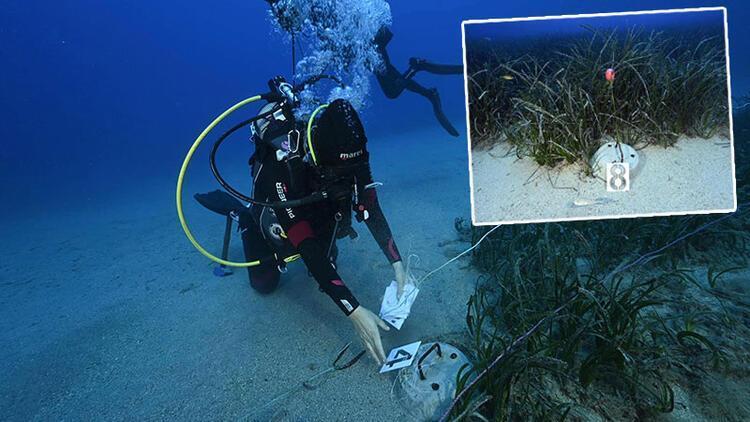
The Mediterranean Conservation Society (AKD) has started a new study to protect the Mediterranean tapeweed, a type of seagrass native to the world-renowned Gökova Gulf in the Aegean province of Muğla, in coordination with the country’s Environment, Urbanisation and Climate Change Ministry.
“Due to the anchoring of yachts, the production of seagrass decreases,” Vahit Alan, an AKD official, said on March 2.
Within the scope of the work, named “Restoration of Marine Ecosystem on Southwestern Coasts,” some six surveillance stations have been installed at the borders of the Mediterranean tapeweed in the sea bed.
Also, once a year divers will dive, examine the seabed and take photos of the seagrass.
Those photos will be used to make a comparison with the previous years’ photos to find out the damage the seagrass has taken.
The first report about the survey will be penned in 2023 and published in local and international articles.
“These seagrasses are native to the Mediterranean Sea. Many sea creatures use them for shelter, reproduction and feeding purposes,” Alan noted.
The current situation of the seagrass is getting worse, and the capacity of their enlargement is shrinking, Alan said, adding, “It is urgent to protect them.”
The AKD was founded in the western province of İzmir in 2012 as a nationwide non-profit organization. The group focuses primarily on endangered species, such as the Mediterranean monk seal and the sandbar shark, and the monitoring and restoration of the marine ecosystems in which they live.
“We contribute to the protection of the species and ecosystems, as well as ensuring the continued existence of traditional shore fishing and those who make a living from it,” the organization says on its official website.